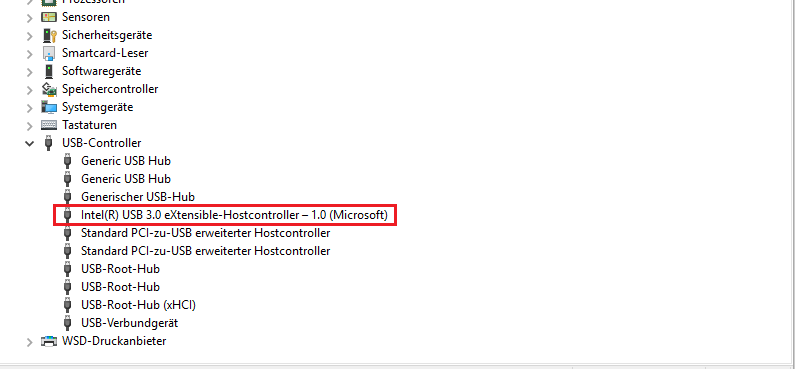Hi Carter,
Thank you for posting your query in Microsoft Community.
We appreciate your interest in Windows 10.
We apologize for the inconvenience caused.
Please follow these methods, mentioned below to resolve the issue.
Method 1:
The Hardware Troubleshooter is an automated tool which checks the hardware connected to the computer for any known issues and provides the details on how to fix them. Follow these steps to run the troubleshooter.
- Click Start.
- Type Troubleshooting in the search bar and press “Enter”.
- In the “Troubleshooting” window, click on
“View All” on the left pane.
- Click on “Hardware and Devices”.
- Click on “Advanced” and then click on “Run as Administrator”.
- Click “Next” and follow the on-screen instructions to complete the troubleshooting process.
If the issue still persists, follow the Method 2.
Method 2:
Uninstall and reinstall the Universal Serial Bus controllers driver and check, if it works. Refer to the following steps to uninstall the Universal Serial Bus controllers driver from the Device Manager.
a. Click on Windows key + X and then, select Device Manager.
b. Locate and expand “Universal Serial Bus controllers” in the Device Manager Window.
c. Right-click on the “Universal Serial Bus controllers” and click on “uninstall".
d. Restart the computer and check, if it works.
If the issue still persists, follow the Method 3.
Method 3:
Install the latest Universal Serial Bus controllers driver in Compatibility mode:
I suggest you to download the Latest Universal Serial Bus controllers driver from manufacture's website and install it in compatibility mode.
1. Right click on the setup file of the driver and select Properties.
2. Select Compatibility Tab.
3. Place a check mark next to Run this program in
Compatibility Mode and select the operating system accordingly from the drop down list.
4. Let the driver to install and then, check the functionality.
Your reply is very important for us to ensure a proper resolution. Please get back to us with the updated information, in order to assist you accordingly.
Thank you.


